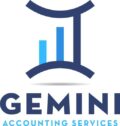Choose an Accounting Method
There are two accounting methods available to small businesses: accrual accounting and cash accounting.
You need to choose an accounting method before you file your first tax return, which you must then apply consistently to all subsequent returns.
It\’s critical to comprehend the differences between the two since they have an impact on cash flow, tax filing, and even bookkeeping procedures for your company. Before choosing your approach, be sure to speak with a CPA.
Cash Bookkeeping
Small firms frequently employ cash accounting. Revenues are recorded as soon as money is received, and expenses are recorded as money is spent. Neither accounts payable or receivable are recognized by this approach.
Cash basis accounting is a popular choice among small enterprises due to its ease of maintenance. There is no need to track payables or receivables using this system, which makes it simple to establish when a transaction has taken place (the money is either in the bank or out of the bank).
By looking at your bank balance and understanding the resources you have available, you can track how much cash the business actually has at any one time with the help of the cash basis technique. (With the exception of unpaid cheques or deposits in transit.)
Additionally, the business\’s income isn\’t taxed until it\’s in the bank because transactions aren\’t recorded until the cash is received or paid.
Accrual Accounting
Accrual accounting keeps track of earnings and costs as they happen, regardless of when the money is really paid or received. The benefit of this method is that it provides you with a more accurate picture of your income and expenses over time.
The drawback of accrual accounting is that it obscures a company\’s actual cash flow; an organization that uses it may appear to have funds when, in fact, its bank accounts are empty. It\’s critical to closely monitor cash flow in conjunction with your balance sheets\’ accounts payable (AP) and accounts receivable (AR) in order to reduce this risk.
What’s the right approach for you?
This question lacks a simple solution. Unless your company is legally mandated to utilize the accrual method, the optimum approach will rely on the accounting needs of your organization.
It\’s also important to keep in mind that, although it is technically possible to alter accounting methods later on, it is simpler to choose the most beneficial one right away.
Ask a CPA to help you choose the accounting strategy that works best for your company with the assistance of, then stay with it.
Create a System for Bookkeeping
In order for a CPA to do their job well, you must give them current, accurate financial statements. This is the role of bookkeeping.
Every entrepreneur, regardless of experience with spreadsheets and numbers, should be aware of the fundamental functions that bookkeeping performs in small businesses.
Building long-term financial success requires constant tracking of daily transactions, which is what bookkeeping entails.
Recording financial transactions, posting debits and credits, performing bank reconciliations, creating customer invoices and tracking sales, receiving vendor invoices and tracking expenses, keeping track of subsidiaries, general ledgers, and historical accounts, and finishing payroll are all included in bookkeeping.
Financial statements are the result of \”bookkeeping,\” and your CPA uses these to file your taxes and make wise financial decisions that support the expansion of your company.
Maintaining a bookkeeping schedule can be done on a daily, weekly, or monthly basis. Making sure your books are accurate, current, and helpful to you and your CPA is the aim, whether you choose to handle the work yourself or hire a professional to do it for you.
You have the following choices to finish your books precisely and on schedule:
- Do It Yourself: If you\’re up to the challenge, you can handle your books using spreadsheets or basic accounting software. When you\’re first starting out and your bookkeeping isn\’t too complicated, this strategy works really well.
- Outsourced Bookkeeping: Give your bookkeeping to a professional when it makes more sense for you to devote your time to other aspects of your company. You may get software to track your accounts or you can employ a local bookkeeper on a contract or part-time basis, or you can use an online virtual bookkeeper.
- Take on an Internal Bookkeeper: Once your company has grown to a size that allows it, you can hire a bookkeeper.
The amount of bookkeeping you need to perform, your budget, the amount of time you can dedicate to the activity, and your level of confidence in your ability to handle the books yourself can all help you determine which bookkeeping approach is best for you.
How to do Record keeping the right way
Everyone, including your CPA, bookkeeper, and you must retain records from the IRS attesting to your income.
You list credits and deductions on your tax return.This means that the following items are necessary to keep on file: bank and credit card statements; bills; canceled checks; invoices; evidence of payments; previous tax returns; W2 and 1099 forms; and financial statements from your bookkeeper.
Any additional documented proof that backs up an income item, a deduction, or a credit listed on your tax return should also be kept. A certain amount of time should pass before discarding any of these records—some for as little as three years, others for ten.
Although you are not required by the IRS to retain records for some expenses under $75, it is nevertheless advised that you maintain digital copies of all documents just for peace of mind. Digital copies of receipts are accepted by the IRS, and scanning and saving them is comparatively simple with applications and internet services.
Other Deductions to Track
The expenses you incur in the course of conducting business will determine the kinds of expenses you are eligible to deduct on your tax return.
Common deductions for small firms include:
- Meals and Entertainment
- Business Gifts Vehicle-Related Expenses
- Out-of-Town Business Travel
- Home Office Expenses
Go Digital
We suggest using Expensify to eliminate paper from your expenditure tracking. Using the GPS and camera on your phone, the app allows you to record the distance of your vehicle and receipts.

